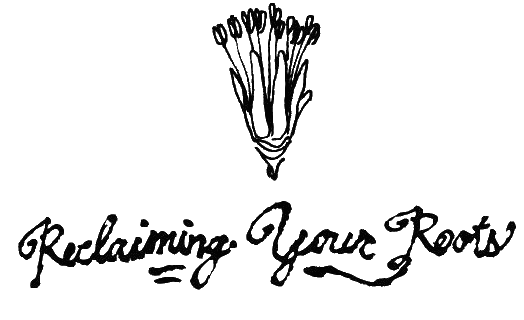Herbal Aphrodisiacs: Damiana
Our modern Valentine's Day and its bounty of hearts, chocolates, and cheap stuffed animals has always struck me as comical (if not downright depressing during some periods in my life). That being said, there is still something there at its roots that I think can be meaningful and even powerful. For me, Valentine's Day is not so much about giving one's partner gifts or lamenting not having partner, as it is an opportunity to explore how comfortable we are in our own skin. Sensuality and sexuality were certainly not concepts talked about in my family nor in my abstinence-only TN education. The idea of feeling at home and relaxed in my body and of cultivating my own sensual self are things I only began to really explore and work on over the past several years. What if this Valentine's Day, instead of worrying about taking your honey to the most expensive restaurant or staying home alone with cookies and watching romantic comedies, you spent a couple hours of this day or even this month, exploring your own sense of being at home in your body? What if you dedicated February to acts of self-love and self-care?
Interestingly enough, many of the herbs that historically have been used as aphrodisiacs are in fact nervous system relaxants. These are plants that help us relax and ground in our own skin. They are herbs that help us to be more present in our bodies and less overly-present in our brains.
Damiana Turnera aphrodisiaca
Parts used: Leaves
Medicinal uses: As it's name suggests, Damiana has a rich history of use as a potent aphrodisiac herb. A member of the mint family, it's native to Central America. The Aztecs used its leaves as a powerful sexual tonic and stimulant, second only to chocolate. Although it has definitely been shown to strengthen the reproductive systems of both men and women and has quite the reputation as an herb of passion and romance, it actually has several other, perhaps even more important uses. Herbalist Rosemary Gladstar considers damiana to be a longevity herb because of its ability to restore the body, mind, and spirit. Damiana is a toning herb for the nervous system, as well as a relaxing, sedative herb. It can help alleviate stress, anxiety, depression and insomnia. It has also been used for dream work and supposedly can help stimulate colorful, vivid dreams, as well as help you remember them. I would recommend using it for infertility, impotence, increasing sexual vitality, and nervous exhaustion.
Dosage: Damiana makes a delicious cordial and also works well as a tincture or tea. As a tincture, take 30-60 drops, up to 3x/day. As a tea, steep 1tsp of the leaves in 8 oz of hot water for 15 minutes. Damiana has a fairly bitter taste, so I would recommend combining it with more tasty herbs, such as lemon balm or peppermint.

